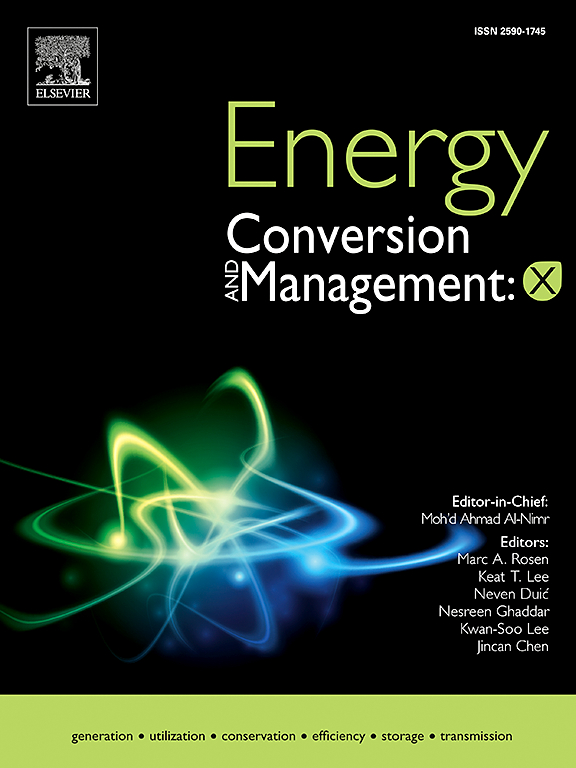全面回顾生物质和生物燃料及其使用数字技术的进展
IF 7.6
Q1 ENERGY & FUELS
引用次数: 0
摘要
这篇综述提供了一个关键的端到端综合数字技术如何重塑生物质和生物燃料价值链-从原料采购到最终使用。我们研究了人工智能和机器学习、物联网、区块链和工厂规模的数字双胞胎在优化供应链、催化和转化系统中的作用。有证据表明,人工智能驱动的预测模型可以将生物燃料产量提高15-25%,而物联网支持的实时监控可以减少高达40%的运营浪费和温室气体排放。除了流程效率之外,我们还展示了数字工具如何实现严格的生命周期评估,支持环境和健康风险管理,并扩大社会经济机会,包括改善小农的市场准入和对熟练工作的需求。政策维度是通过可追溯性、透明度和遵守不断发展的法规的数字框架来解决的。一个显著的特点是我们对第四代生物燃料的关注以及合成生物学与人工智能的协同潜力。最后,我们给出了一个整合了技术、组织和政策行动的实际实施路线图;识别数据质量、互操作性、网络安全、技能和治理方面的持续挑战;并概述了混合物理的研究重点——ml模型、开放标准、可信赖的MRV和公平部署。研究结果为寻求加速可持续、低碳生物经济与全球气候目标相一致的研究人员、行业和政策制定者提供了简明的参考。本文章由计算机程序翻译,如有差异,请以英文原文为准。
A comprehensive review of biomass and biofuels and their progress using digital technologies
This review provides a critical, end-to-end synthesis of how digital technologies are reshaping the biomass and biofuel value chain—from feedstock sourcing to end use. We examine the roles of artificial intelligence and machine learning, the Internet of Things, blockchain, and plant-scale digital twins in optimizing supply chains, catalysis, and conversion systems. Evidence indicates that AI-driven predictive models can raise biofuel yields by 15–25%, while IoT-enabled, real-time monitoring cuts operational waste and greenhouse-gas emissions by up to 40%. Beyond process efficiency, we show how digital tools enable rigorous life-cycle assessment, support environmental and health risk management, and expand socioeconomic opportunities, including improved market access for smallholders and demand for skilled jobs. Policy dimensions are addressed through digital frameworks for traceability, transparency, and compliance with evolving regulations. A distinctive feature is our focus on fourth-generation biofuels and the synergistic potential of synthetic biology with AI. We conclude with a practical implementation roadmap that integrates technical, organizational, and policy actions; identifies persistent challenges in data quality, interoperability, cybersecurity, skills, and governance; and outlines research priorities in hybrid physics–ML models, open standards, trustworthy MRV, and equitable deployment. The result is a concise reference for researchers, industry, and policymakers seeking to accelerate a sustainable, low-carbon bioeconomy aligned with global climate goals.
求助全文
通过发布文献求助,成功后即可免费获取论文全文。
去求助
来源期刊

Energy Conversion and Management-X
Multiple-
CiteScore
8.80
自引率
3.20%
发文量
180
审稿时长
58 days
期刊介绍:
Energy Conversion and Management: X is the open access extension of the reputable journal Energy Conversion and Management, serving as a platform for interdisciplinary research on a wide array of critical energy subjects. The journal is dedicated to publishing original contributions and in-depth technical review articles that present groundbreaking research on topics spanning energy generation, utilization, conversion, storage, transmission, conservation, management, and sustainability.
The scope of Energy Conversion and Management: X encompasses various forms of energy, including mechanical, thermal, nuclear, chemical, electromagnetic, magnetic, and electric energy. It addresses all known energy resources, highlighting both conventional sources like fossil fuels and nuclear power, as well as renewable resources such as solar, biomass, hydro, wind, geothermal, and ocean energy.
 求助内容:
求助内容: 应助结果提醒方式:
应助结果提醒方式:


